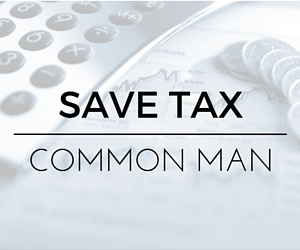Income Tax Exemptions for Salaried Employees
- 8 January 2016 | 921 Views | By Mint2Save

The Income Tax Act allows various Income Tax Exemptions for Salaried Employees which are very effective in saving taxes.
A salaried employee would be required to intimate his employer that he is claiming these income tax exemptions available for Salaried Employees and then the Employer would compute the Tax on the balance income as per the Income Tax Slabs and deduct TDS on Salary accordingly.
The TDS deducted from Salary Income is reflected in the Form 16 which is required to be given by the employer to all his employees for deduction of TDS during the financial year. The TDS so deducted is also reflected in the Form 26AS which can be downloaded online by the employees themselves.
The various Income Tax Exemptions for Salaried Employees have been mentioned below. These Income Tax Exemptions for Salaried Employees are highly advisable to everyone as they help in saving tax legally thereby reducing the tax burden on the Salaried Employee.
1. HRA Exemption for Salaried Employees
Many employers give House Rent Allowance (HRA) to their employees for them to reside at a good place. A portion of the House Rent Allowance given by an employer to an employee is exempted from the levy of the Income Tax and Income Tax is only levied on the remaining part. HRA Exemption is one of the most useful income tax exemptions for Salaried Employees as it can be easily claimed and the amount of exemption allowed is also large.
2. Income Tax Exemption on Leave Travel Allowance
Many employers also give allowances to their employees to go on a vacation with their respective families. The amount given by the employer to an employee to go on a vacation is exempted from the levy of tax to a certain extent provided that the amount given was for a vacation in India only. Leave Travel Allowance is also an effective income tax exemption for Salaried Employees. However, this amount can only be claimed if the employee actually goes on a vacation as bills for the same would be required to be furnished.
3. Exemption on Encashment of Leaves for Salaried Employees
Most employers give all their employees a certain no. of days which can be claimed as leaves. However, in case a person does not claim these leaves, many employers also give their employees the option for en-cashing these leaves i.e. the employers pays extra to the employees for the leaves which were allowed to be taken but were not taken. This amount received as Leave Encashment is also allowed to be claimed as an exemption up to a certain extent.
4. Tax Exemption from Pension Income for Salaried Employees
On retirement of an employee, many employers pay a pension to their employees. Sometimes, the employer pays pension from his own pocket and in some cases, the employer purchases an annuity and then the pension is being paid by the organisation from whom the annuity has been purchased.
The Pension can be of 2 types i.e. Commuted and Uncommuted. In commuted pension, the whole amount of pension is received in lump-sum whereas in Uncommuted Pension, the amount is paid in instalments at regular intervals. Irrespective of the type of Pension, Income Tax Exemption is given in both types of pensions up to a certain limit.
5. Income Tax Exemption on Gratuity for Salaried Employees
Gratuity is a gift made by the employer to his employee in appreciation of the past services rendered by the employee. Gratuity can either be received by:- The employee himself at the
1. time of his retirement
2. The legal heir at the time of the death of the employee
For the purpose of computing Income Tax Exemptions for Salaried Employees who have received gratuity, the employees can be segregated into 3 parts and then the exemption is allowed depending on the category they are into:-
1. Govt. Employees and employees of Local Authorities
2. Employees covered under the Payment of Gratuity Act, 1972
3. Employees not covered in any of the 2 above.
6. Income Tax Exemption on VRS Received
Many employees opt for Voluntary Retirement before the actual age of retirement (i.e. 60 years). In such cases, the employer sometimes gives some money to the employee on his voluntary retirement.
The amount received or receivable by the employee on voluntary retirement under the golden handshake scheme is exempted under Section 10(10C)
7. Income Tax Exemption for Perquisites
Some employers also give their employees various perquisites/facilities like Car, Mobile phones, Rent Free accommodation. Such perquisites are not fully tax free. A specific value of such facilities is allowed as an exemption and value of the balance facilities allowed is allowed as an exemption.
8. Exemption of Various Allowances
Various other allowances like Transport Allowance, Children Education Allowance are also allowed as Income Tax Exemptions to Salaried Employees but only up to a certain limit.











